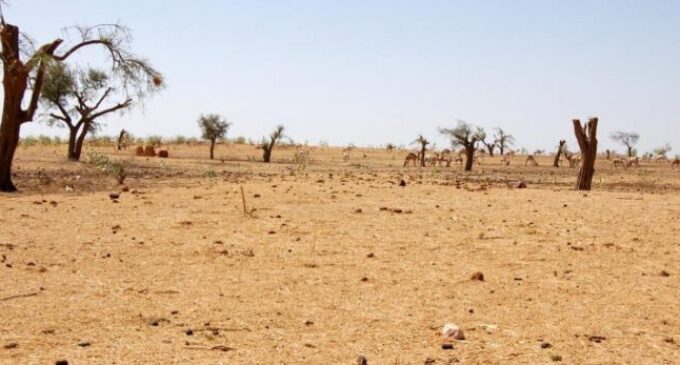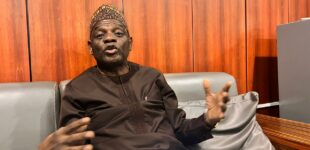Climate change: AfDB, IMF urge African nations to mobilise $1.6trn by 2030

The African Development Bank and the International Monetary Fund (IMF), have called on Africa to mobilise funds to fight climate change.
The institutions disclosed this on Monday at a panel discussion on the 2022 African Economic Outlook in Washington, DC.
The panellists include Kevin Urama, AfDB’s acting chief economist and vice-president for economic governance and knowledge management; James Roaf, IMF’s assistant director, fiscal affairs department and climate change policy coordinator and Anthony Simpasa, acting manager, AfDB’s macroeconomic policy, debt sustainability and forecasting division.
Urama said African countries need to mobilise $1.6 trillion between 2022 and 2030 to meet their nationally determined contributions to fight climate change.
He said only $18.3 billion is received annually, leaving a financing gap of $108 billion.
Urama added that Africa has huge comparative advantages to lead the world in this new green transition but lacks the capital to do so.
According to him, the findings of the 2022 African Economic Outlook show that the structure of climate finance is complicated and creates a misallocation of resources and as a result, the main objective of climate finance — to support climate-vulnerable countries — is not being achieved.
“One fundamental, existential issue for Africa is climate change. The countries that are receiving climate financing are the less vulnerable ones,” Urama said.
He called for a different approach in solving the climate challenge in Africa.
“What I see are opportunities to do things differently so that we are not using an old map to chart a new world. This will include tradeoffs,” he said.
On his part, Abebe Selassie, director of the African department at IMF, said African policymakers face the unenviable task of needing to invest trillions of dollars in an important energy transition that the region needs to advance its development.
“At the same time, they are being asked to think about the adverse effect that this may have on climate change, but advanced countries who benefited from climate unfriendly policies are unwilling to support development in the region. This is one issue that policymakers raise with us when we engage with them on the financing challenges they face,” he said.
Selassie described the findings as “sobering and raised some profound issues”.
Also speaking, Roaf said adaptation was the biggest issue for Africa, as he suggested ways countries can maximise climate finance and make the best use of it.
“The African Economic Outlook rightly stresses the need to integrate climate objectives in overall sustainable development pathways. We need to focus on making the most of the opportunities that the clean energy transition offers so that climate mitigation and adaptation policies come hand in hand with rising prosperity,” Roaf said.
“Mobilising the private sector is critical, with policies such as carbon pricing to encourage investment in renewables, or improving adaptation incentives by reinforcing property rights or strengthening regional trade.”
















There are no comments at the moment, do you want to add one?
Write a comment